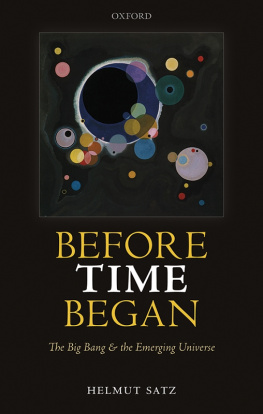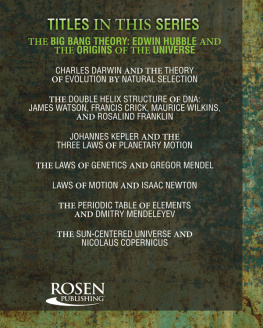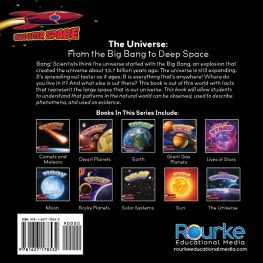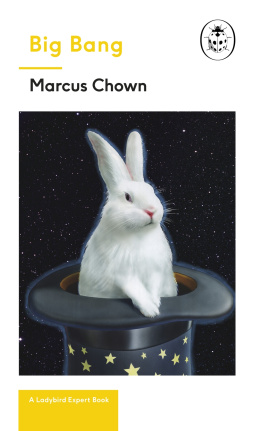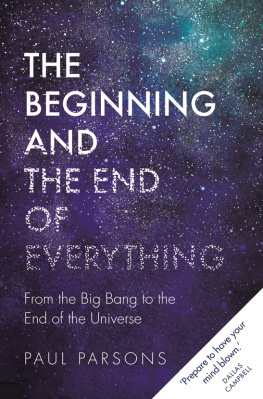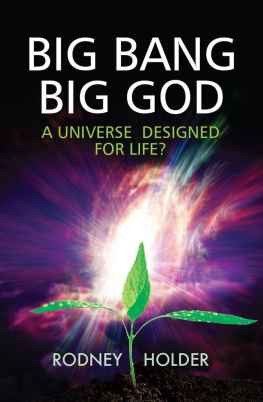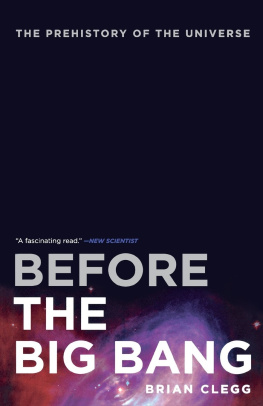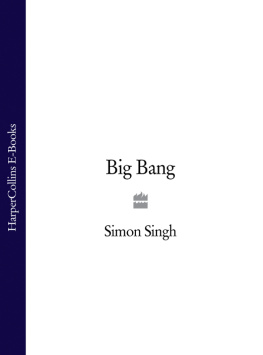Helmut Satz - Before time began: the Big Bang and the emerging universe
Here you can read online Helmut Satz - Before time began: the Big Bang and the emerging universe full text of the book (entire story) in english for free. Download pdf and epub, get meaning, cover and reviews about this ebook. year: 2017, publisher: Oxford University Press, genre: Children. Description of the work, (preface) as well as reviews are available. Best literature library LitArk.com created for fans of good reading and offers a wide selection of genres:
Romance novel
Science fiction
Adventure
Detective
Science
History
Home and family
Prose
Art
Politics
Computer
Non-fiction
Religion
Business
Children
Humor
Choose a favorite category and find really read worthwhile books. Enjoy immersion in the world of imagination, feel the emotions of the characters or learn something new for yourself, make an fascinating discovery.
- Book:Before time began: the Big Bang and the emerging universe
- Author:
- Publisher:Oxford University Press
- Genre:
- Year:2017
- Rating:4 / 5
- Favourites:Add to favourites
- Your mark:
- 80
- 1
- 2
- 3
- 4
- 5
Before time began: the Big Bang and the emerging universe: summary, description and annotation
We offer to read an annotation, description, summary or preface (depends on what the author of the book "Before time began: the Big Bang and the emerging universe" wrote himself). If you haven't found the necessary information about the book — write in the comments, we will try to find it.
Helmut Satz: author's other books
Who wrote Before time began: the Big Bang and the emerging universe? Find out the surname, the name of the author of the book and a list of all author's works by series.
Before time began: the Big Bang and the emerging universe — read online for free the complete book (whole text) full work
Below is the text of the book, divided by pages. System saving the place of the last page read, allows you to conveniently read the book "Before time began: the Big Bang and the emerging universe" online for free, without having to search again every time where you left off. Put a bookmark, and you can go to the page where you finished reading at any time.
Font size:
Interval:
Bookmark:
BEFORE TIME BEGAN

Great Clarendon Street, Oxford, OX2 6DP, United Kingdom
Oxford University Press is a department of the University of Oxford. It furthers the Universitys objective of excellence in research, scholarship, and education by publishing worldwide. Oxford is a registered trade mark of Oxford University Press in the UK and in certain other countries
Helmut Satz 2017
The moral rights of the author have been asserted An earlier version of this book has appeared as
Kosmische Daemmerung with C. H. Beck Verlag, Munich 2016.
First Edition published in 2017
Impression: 1
All rights reserved. No part of this publication may be reproduced, stored in a retrieval system, or transmitted, in any form or by any means, without the prior permission in writing of Oxford University Press, or as expressly permitted by law, by licence or under terms agreed with the appropriate reprographics rights organization. Enquiries concerning reproduction outside the scope of the above should be sent to the Rights Department, Oxford University Press, at the address above
You must not circulate this work in any other form and you must impose this same condition on any acquirer
Published in the United States of America by Oxford University Press 198 Madison Avenue, New York, NY 10016, United States of America
British Library Cataloguing in Publication Data
Data available
Library of Congress Control Number: 2017943713
ISBN 9780192510877
Printed and bound by CPI Group (UK) Ltd, Croydon, CR0 4YY
Links to third party websites are provided by Oxford in good faith and for information only. Oxford disclaims any responsibility for the materials contained in any third party website referenced in this work.
Quid faciebat deus, antequam faceret caelum et terram?
What did God do before he made heaven and earth?
A UGUSTINUS ( AD 354430)
C ONFESSIONES 11/12
Preface
Ever since humans began to think about the world in which they lived, they have asked themselves how this world came to be, why it is as it is, how it was before, how it will be in the future, and what role we will continue to play in it. All human civilizations try to give answers to these questions. Wherever we look, we see happenings which have a beginning and an end, just as our lives do. Did our universe have a beginning, and will it have an end? When we stand at night beneath the immense starlit sky, it seems natural to ask how all that was formed, how large it is, and what will become of it. We are such a tiny part of something so great, but still we can ask such questions, and perhaps it is that which makes us special.
The search for answers to these questions has led to religions, to epics, to a wealth of philosophies, and eventually, of course, to natural science. In science, cosmology has developed as the relevant branch of research, and what we want to say here is largely based on studies in its framework. Nevertheless, even if different answers to the basic questions have in the course of time seemed to contradict each other, it appears that these differences were rather superficial, and that the essentials are more in accord than initially thought. And we find today that cosmology is entering regions which for many physicists are no longer science, since they are no longer experimentally explorable. Nevertheless, they remain challenges to human thinking.
In this book I want to describe the essential steps in the formation and evolution of our universe, as they have proceeded according to the presently prevalent ideas in cosmology and physics. We will see that much is indeed in accord with previous, less scientific views. Already more than two thousand years ago, much of what today is considered as the latest scientific result was proposed simply as the outcome of logical thinking. What has been added from the time of Galilei on is certainly the insistence that all conclusions must be confirmed by experiment. It is only that which turns metaphysics into physics. Nevertheless, we note that in recent times more and more interesting ideas have been pursued, from a multiverse and parallel universes to wormholes through space and time, even though in our present world these concepts are not accessible to experiment. The world of the imaginable remains much larger than that of the testable, and so in the future, even in natural science, concepts and ideas may well survive without presently having a chance to be verified experimentally.
The basic questions we want to address here fall into three areas:
How and out of what was our universe formed, our world in time and space? What was before, and what will happen afterwards?
What are the basic building blocks of matter in our present world, and what forces determine their binding?
How could a uniform, structureless, primeval world lead to the present multitude of forms and structures?
The answers we have today to these questions are, as already indicated, still of a somewhat speculative nature, and they are certainly not accepted by all. But I believe that they are interesting enough to pursue them further. That is the aim of this book.
Less than thirty years ago, the first of these questions was still ruled out as politically incorrect. The beginning was the Big Bang, and before made no sense; there was no before. Today, many cosmologists and physicists picture the birth of our universe as a rapidly expanding bubble in a hot primordial world, one bubble among many others. We are witnessing today a second Copernican revolution: neither our solar system nor our galaxy nor our universe are the end of all things. Beyond our world there are innumerable others, similar or not similar to ours, worlds we can never reach but which should nevertheless exist. These views make the Big Bang a physical process and not a singular occurrenceit is not a unique event; there were and there will continue to be others like it, and it can also lead to an end.
The question about the building blocks of our present world and of its predecessors in earlier stages of development can today be answered in a more extensive way than ever before, thanks to progress in particle physics. The dream of a final theory, a theory in which electromagnetic, strong, and weak nuclear forces are unified into a single interaction, is still not fulfilled, but has become more conceivable. Such a theory of grand unification must describe a primordial world of great symmetry, in which all constituents are treated equally. The cooling of the universe then leads to the breaking of symmetries and thus to the different interactions. The role of gravity in such a picture still remains enigmatic, however.
The development of the complexity of our world has also led to different and perhaps even contradictory ideas. The crucial point here is the famous second law of thermodynamics, insisting on a development toward increasing entropy, and thus giving a direction to time. Does that mean that our universe should become more and more disordered and thus head toward an end without form and structure? Here two ways out have been noted. First, the increasing expansion of the universe can in the long run prevent thermal equilibrium from ever being reached. Second, the role of gravitation as the dominant force implies that in a cooling gas an equidistribution of matter is not the stable form of the medium. As long as gravity rules, a world of galaxies and radiation in empty space is thermodynamically preferable to a uniform gas of particles.
So, for all three questions, much has happened in the past 30 years, and our thinking has been thoroughly modified. Two basic approaches of physicsreduction (What are the smallest possible building blocks of matter?) and extension (Earth, planets, solar system, galaxy, supergalaxy, universe)seem to have reached their limits, through quarks and the multiverse, respectively. On the other hand, the new concept of emergence has appeared on the scene. We distinguish today fundamental observables and forces (charges, atomic binding) from emergent observables and forces (temperature, pressure) that arise from the collective effort of many constituents. It seems meaningful to present these new views of the world to a general, nonspecialist readership, and that is what I want to do here. In doing so, I want to concentrate more on the novel concepts, notions, and ideas that have come up, and less on details about who did what, when, and why. It could well be that the new conceptual developments will eventually have profound consequences in other areas of human thoughtit would not be the first time for physics. In any case, I want to show to all those interested that we are today witnessing the emergence of new ideas in natural scienceideas that so far have had a much greater impact on our thinking than they have on our technology. Whether they will ever result in advances of practical use to mankindthat remains to be seen. But they have already fundamentally changed our view of the world in which we live.
Next pageFont size:
Interval:
Bookmark:
Similar books «Before time began: the Big Bang and the emerging universe»
Look at similar books to Before time began: the Big Bang and the emerging universe. We have selected literature similar in name and meaning in the hope of providing readers with more options to find new, interesting, not yet read works.
Discussion, reviews of the book Before time began: the Big Bang and the emerging universe and just readers' own opinions. Leave your comments, write what you think about the work, its meaning or the main characters. Specify what exactly you liked and what you didn't like, and why you think so.

